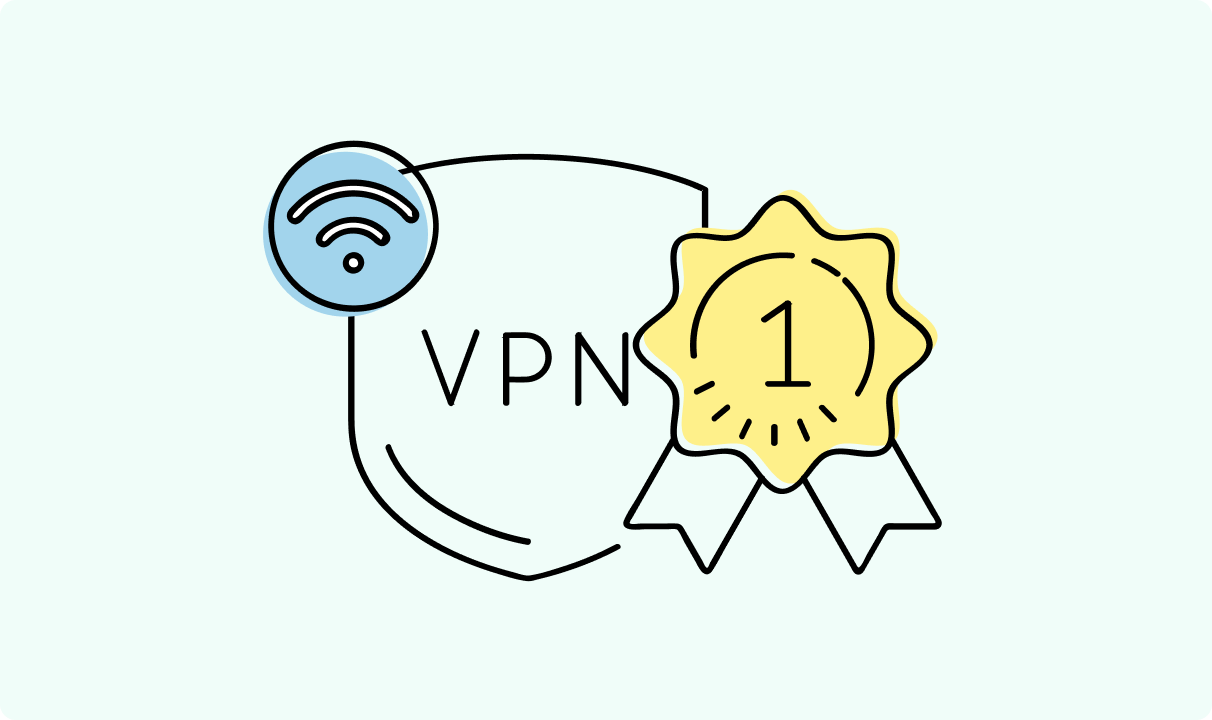What is a Residential Proxy? How It Works & Use Cases
Key takeaways:
- Residential proxies work by rerouting your online traffic through a residential IP address assigned to physical devices owned in different households.
- Residential proxies provide a big pool of IP addresses, a high level of legitimacy and privacy, along with a deep anonymization of your identity.
- There can be rotating or dedicated residential proxies and they are best used for web scraping, SEO monitoring, account management, and ad verification.
A residential proxy is a type of intermediary server that uses household IP addresses to mask your identity online. Unlike other similar servers that use cloud-hosted IPs, this proxy employs IP addresses that are assigned to physical devices in different residential areas by Internet Service Providers (ISPs).
When you send a request online while using this proxy, your request comes from one of the residential IP addresses assigned to a particular device owned by an actual person.
It seems like the request was sent from that device because your traffic is routed through a residential proxy as a middleman that uses this IP address.
Traffic becomes significantly less susceptible to tracking or figuring out your identity, which makes your web activities not linked to your physical location or other private data.

Guoda Šulcaitė
5 min read
How Residential Proxies Work
The essence of a residential proxy mainly consists of three elements that explain how it works:
- Rerouting requests through residential devices. Requests that you send from your device with its IP address are intercepted by the proxy server and rerouted through a residential device.
- Residential IP represents your request. After the residential proxy intervenes, a website that you send a request to will see the proxy’s real-home-device IP instead of your original one, but the request sent will otherwise remain the same.
- Responses are also mediated. Residential proxies not only represent your requests to hide your identity, they also wait for the response from the server and return it back to you, to complete the whole transaction between you and the server without ever giving in who is standing behind the curtain.
Residential proxies work like private investigators who do all the work for you without ever telling anyone who they are working for. Your identity along with your physical location will remain concealed, and you can continue exploring the internet without your original IP getting banned.
Types of Residential Proxies
Residential proxies come in several variations based on usage and connection behavior.
Two key distinctions can be made to outline the main difference in how they behave.
First, the choice can be made between shared vs dedicated proxies:
- Shared residential proxies. They are used by multiple users simultaneously. Shared residential proxies are more affordable but may be slightly less reliable due to traffic from other users that might interfere with your browsing record which will be influenced by other users’ requests.
- Dedicated residential proxies. Also known as single-user or private proxies, they provide exclusive access to a pool of specific IP addresses. More stable and ideal for sensitive operations.
Another distinction that can be made is between rotating and static residential proxies:
- Sticky (static) residential proxies. Maintain the same IP address for a session. Useful when consistency is needed, like logging into accounts. However, they can be traced faster, even though they will not lead to your original IP, because a website can build up a browsing and behavior history for that IP.
- Rotating residential proxies. Automatically switch to a new IP address after a set time or request count, minimizing the risk of IP bans and enhancing stealth. It is best for activities like web scraping or price monitoring.
Another type, although not so distinctive, are mobile residential proxies that use IP addresses from real mobile devices that can give greater trust scores on some platforms, but they can also vary among the aforementioned types. Mobile proxies are still a type of residential proxies, though, since they come from household devices and ISPs or telco providers.
Key Benefits & Characteristics
Residential proxies offer several advantages that make them ideal for professional and enterprise-level tasks:
- High legitimacy. Since an IP address that it uses is assigned by an ISP to a household, it looks genuine and lets you avoid being flagged for suspicious activity like using bots or web scraping.
- Massive IP pools. Most VPN providers offer access to millions of residential proxies around the world, ensuring coverage across nearly every location.
- Rotating IPs. With rotating residential proxies, you reduce the risk of blocks or rate limits, which is crucial for high-volume data gathering.
- Geo-specific accuracy. Do you need to appear like you are browsing from, say, Tokyo or Dubai? Residential proxies can route your traffic through real devices with IPs from those areas.
- ISP-issued trust. Unlike cloud-based proxies, residential proxies have the trust that ISPs have already established, so your requests will carry this reputation and trust along, increasing your legitimacy even more.
Residential vs Datacenter Proxies
While both types serve similar functions, the difference lies in the source and perception of their IP addresses:
- Residential proxies use ISP-issued IP addresses tied to actual homes. They are harder to detect and block but typically most proxy providers set their prices higher on such services.
- Datacenter proxies are generated from data centers and are not tied to real users. Due to their cloud-based accessibility, they offer faster performance but are often easier to flag or ban.
- Since residential proxies use residential IP addresses, they have a wider pool of IP addresses, but datacenter proxies have more providers to choose from because they are easily developed.
While residential proxies are more reliable for sensitive tasks, datacenter proxies work best for low-risk, high-speed operations.
Residential Proxies vs VPN
Though they share some similarities, residential proxies and VPNs differ in use cases and features:
- Privacy & encryption. VPNs encrypt your connection end-to-end. Residential proxies don’t always offer encryption, but they also provide anonymity through IP address masking.
- IP rotation & stealth. VPNs usually use a single IP address per session. Rotating residential proxies can change your IP frequently for better stealth.
- Use case focus. VPNs are suited for general privacy and access, especially useful for internal resource and communication channel protection within a company. Residential proxies excel in automation, scraping, and managing multiple accounts which makes them more beneficial in external ventures online.
For a better comparison, take a look at this table about core features and differences between discussed types of servers:
Feature | Residential Proxies | Datacenter Proxies | VPN |
|---|---|---|---|
| IP source | Real home devices via ISPs | Cloud servers in data centers | Shared or dedicated servers via VPN provider |
| IP rotation | Yes | Yes | Rare |
| Stealth level | High | Medium to low | Medium |
| Encryption | No | No | Yes |
| Use case | Scraping, ads, accounts | Speed-heavy scraping | General privacy & access |
Common Use Cases
Thanks to their legitimacy and flexibility, residential proxies are used across many industries:
- Web scraping & data collection. Bypass rate limits and geo-restrictions while staying under the radar.
- Ad verification & SEO monitoring. Check how ads appear in different regions or verify ad placement.
- Account management & geo-unblocking. Handle multiple social or e-commerce profiles without triggering security flags. Bypass regional blocks to access content as if you were in another physical location.
- Load testing. Use residential IPs to create realistic traffic to test your websites or apps before releasing a major update for actual customers.
Conclusion
Residential proxies provide real IP addresses from residential areas that allow you to mask your identity by outsourcing identifiable parameters of your requests to different locations with no trace back to you.
Large-scale businesses or lower-level enterprises can benefit from increased levels of anonymity, privacy, and security. It allows them to bypass IP bans and geo-restrictions and scrape the web without being bothered by bot detection or other threats limiting activity. However, if you just want anonymity from residential IPs, buy a residential VPN instead.
Frequently Asked Questions
What is a residential proxy used for?
It is used for tasks requiring high anonymity and legitimacy, such as data scraping, account management, and ad verification. They are used to conceal your identity with real IP addresses assigned by Internet Service Providers.
Are residential proxies legal?
Yes, residential proxies are legal to use in most regions. However, misuse (like fraud or spamming) is illegal. Just make sure to use multiple IP addresses from a trustworthy proxy provider to avoid being flagged for suspicious activity, even though you don’t go against the law.
Do residential proxies encrypt your traffic?
Not by default. While they mask your IP address, they do not offer the same encryption that VPN servers do.

Author
Guoda Šulcaitė
Growth Manager at CometVPN
Guoda is an all-round marketing professional with deep knowledge in the tech SaaS industry, particularly VPNs and proxies. She has worked on numerous projects and helped achieve impressive results through project management, content production, and SEO.
Related articles

4 min read
Best Residential VPN Providers in 2025
A Virtual Private Network (VPN) encrypts your traffic and hides your IP address. The way these functions are accomplished affects various aspects of your online privacy and security.
Here, we'll consider using residential IP addresses instead of those originating from a data center. A residential VPN has advantages compared to traditional ones, but there are some caveats. It all boils down to residential VPN providers.
The worst ones may even create more risks than benefits. We'll end this article with a list of the best residential VPN providers on the market.

Guoda Šulcaitė
4 min read
Ethernet vs Wi-Fi: Which One is Better?
Ethernet and Wi-Fi are the two main ways to connect your computer to the internet. While Wi-Fi has received significantly more attention in recent years, especially among consumers, due to its simplicity and flexibility, ethernet is still widely used in various other applications.
Even if Wi-Fi is significantly more popular, it isn’t strictly better. Both methods have their benefits and drawbacks. Wi-Fi’s popularity comes from its ease-of-use and flexibility, but an ethernet connection can be much more useful in certain scenarios.

Adomas Šulcas

5 min read
How to Change Chrome Proxy Settings: The Ultimate Guide
A proxy server is an easy alternative to a VPN that can perform most of the functions of the latter. It’s a server that stands between your device and the destination server, taking your connection requests and forwarding them in your name.
Destination servers in almost all cases see the proxy server as the originator of the request. As such, proxies are widely used in various, mostly business-related applications whenever privacy, security, location changing, and several other factors are at play.

Guoda Šulcaitė